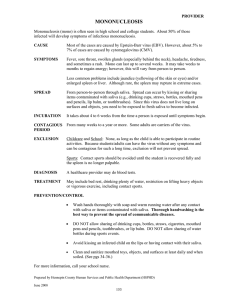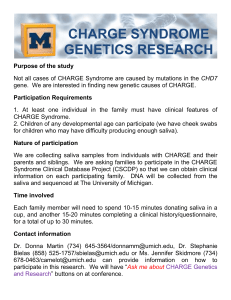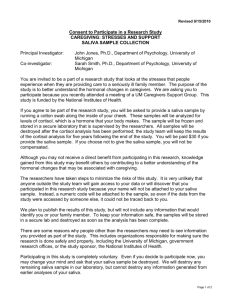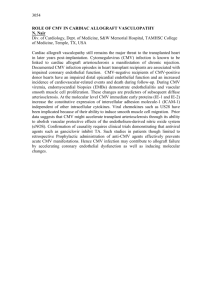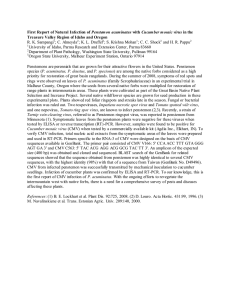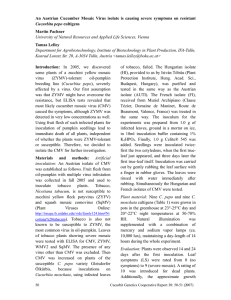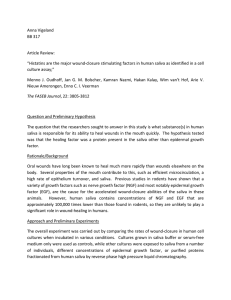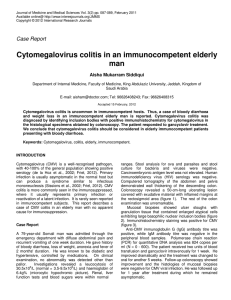CYTOMEGALOVIRUS (CMV) INFECTION
advertisement
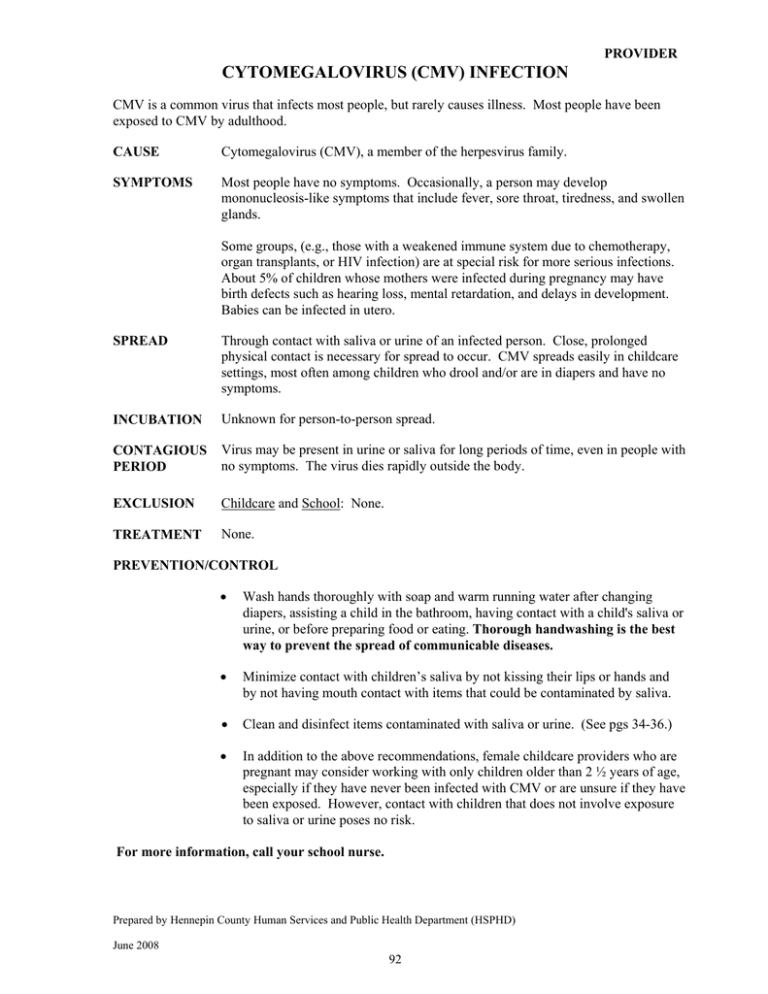
PROVIDER CYTOMEGALOVIRUS (CMV) INFECTION CMV is a common virus that infects most people, but rarely causes illness. Most people have been exposed to CMV by adulthood. CAUSE Cytomegalovirus (CMV), a member of the herpesvirus family. SYMPTOMS Most people have no symptoms. Occasionally, a person may develop mononucleosis-like symptoms that include fever, sore throat, tiredness, and swollen glands. Some groups, (e.g., those with a weakened immune system due to chemotherapy, organ transplants, or HIV infection) are at special risk for more serious infections. About 5% of children whose mothers were infected during pregnancy may have birth defects such as hearing loss, mental retardation, and delays in development. Babies can be infected in utero. SPREAD Through contact with saliva or urine of an infected person. Close, prolonged physical contact is necessary for spread to occur. CMV spreads easily in childcare settings, most often among children who drool and/or are in diapers and have no symptoms. INCUBATION Unknown for person-to-person spread. CONTAGIOUS PERIOD Virus may be present in urine or saliva for long periods of time, even in people with no symptoms. The virus dies rapidly outside the body. EXCLUSION Childcare and School: None. TREATMENT None. PREVENTION/CONTROL • Wash hands thoroughly with soap and warm running water after changing diapers, assisting a child in the bathroom, having contact with a child's saliva or urine, or before preparing food or eating. Thorough handwashing is the best way to prevent the spread of communicable diseases. • Minimize contact with children’s saliva by not kissing their lips or hands and by not having mouth contact with items that could be contaminated by saliva. • Clean and disinfect items contaminated with saliva or urine. (See pgs 34-36.) • In addition to the above recommendations, female childcare providers who are pregnant may consider working with only children older than 2 ½ years of age, especially if they have never been infected with CMV or are unsure if they have been exposed. However, contact with children that does not involve exposure to saliva or urine poses no risk. For more information, call your school nurse. Prepared by Hennepin County Human Services and Public Health Department (HSPHD) June 2008 92

